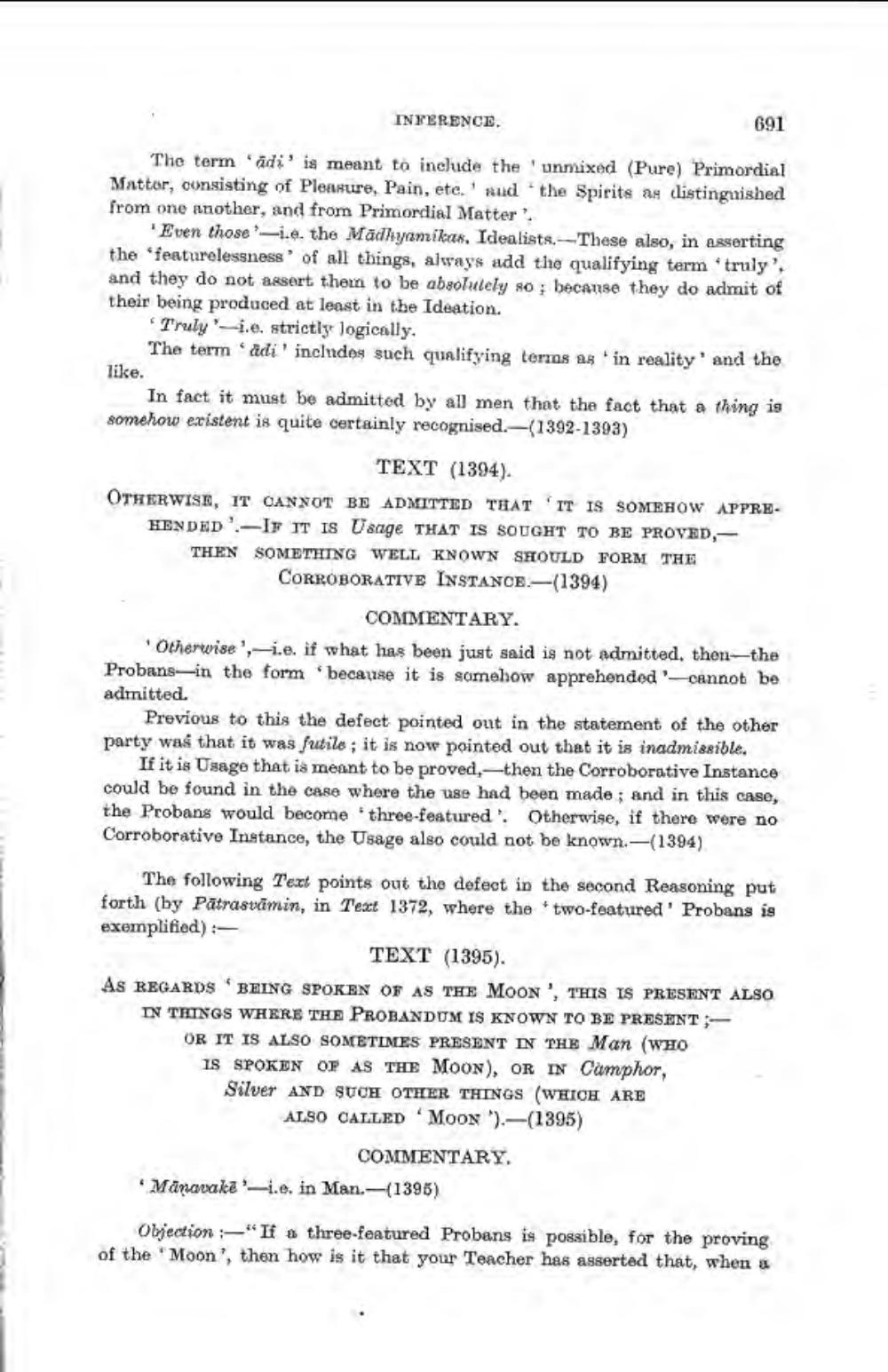________________
INTERENCE.
691
The term 'adi' is meant to include the unmixed (Pure) Primordial Mattor, consisting of Pleasure, Pain, etc.' sud 'the Spirits au clistinguished from one another, and from Primordial Matter
Even those' -i.e. the Madhyamikas. Idealists. These also, in asserting the "featurelessness of all things, always add the qualifying term 'truly, and they do not assert them to be absolutely so; becanse they do admit of their being produced at least in the Ideation.
Truly '-.e. strictly logically,
The term 'adi' includes such qualifying terras as in reality and the like.
In fact it must be admitted by all men that the fact that a thing is somehow existent is quite certainly recognised.-(1392-1393)
TEXT (1394). OTHERWISE, IT CANNOT BE ADMITTED THAT IT IS SOMEHOW APPREHENDED -IF IT IS Uange THAT IS SOUGHT TO BE PROVED, THEN SOMETHING WELL KNOWN SHOULD FORM THE
CORROBORATIVE INSTANCE.-(1394)
COMMENTARY. Otherwise',-i.e. if what has been just said is not admitted, then-the Probans in the form because it is somehow apprehended' cannot be adınitted
Previous to this the defect pointed out in the statement of the other party was that it was futile; it is now pointed out that it is inadmissible.
If it is Usage that is meant to be proved, then the Corroborative Instance could be found in the case where the use had been made; and in this case, the Probans would become three-featured'. Otherwise, if there were no Corroborative Instance, the Usage also could not be known.-(1394)
The following Text points out the defect in the second Reasoning put forth (by Patrasvāmin, in Text 1372, where the two-featured' Probans is exemplified) :
TEXT (1395). AS REGARDS BEING SPOKEN OF AS THE MOON', THIS IS PRESENT ALSO IN THINGS WHERE THE PROBANDUM IS KNOWN TO BE PRESENT
OR IT IS ALSO SOMETIMES PRESENT IN THE Man (WHO IS SPOKEN OF AS THE MOON), OR IN Camphor, Silver AND SUCH OTHER THINGS (WHICH ARE
ALSO CALLED MOON").-(1395)
COMMENTARY i.e. in Man.-(1395)
Mänavaka
Objection :-"If a three-featured Probans is possible, for the proving of the Moon', then how is it that your Teacher has asserted that, when




